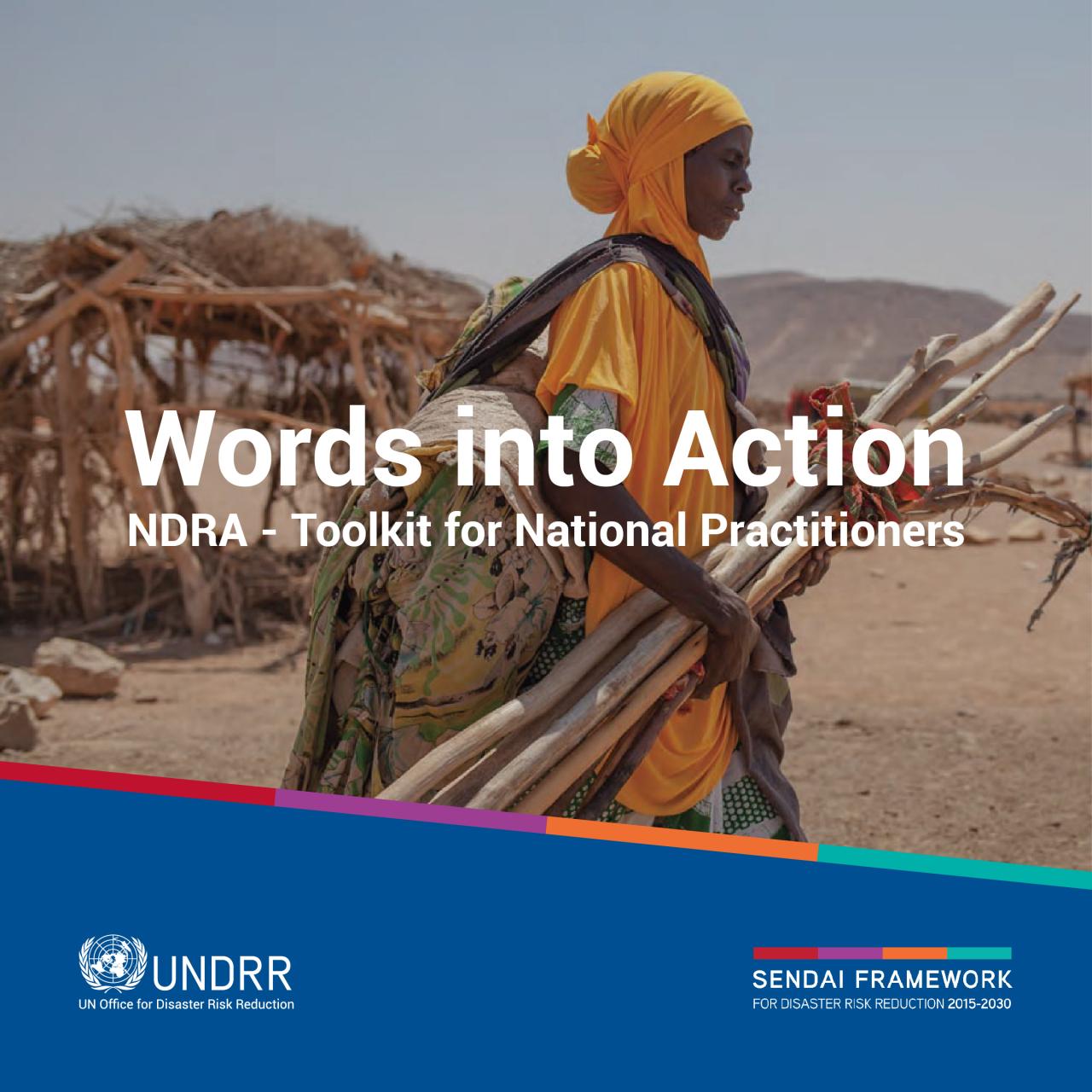
Words into Action: National Disaster Risk Assessment - Toolkit for National Practitioners
United Nations Office for Disaster Risk Reduction (UNDRR) (1347)
The e-learning course aims to motivate and guide countries in establishing a national system for understanding disaster risk, serving as a central repository for publicly available risk information. This system will oversee the implementation and updates of national disaster risk assessments to inform disaster risk management, risk reduction strategies, and development plans.
The United Nations Office for Disaster Risk Reduction (UNDRR) has commissioned the development of guidelines on National Disaster Risk Assessment (NDRA) as part of its “Words into Action” initiative. These guidelines aim to support the national implementation of the Sendai Framework for Disaster Risk Reduction 2015-2030 by addressing the Framework’s first priority: understanding disaster risk.
The guidelines provide a comprehensive overview of the policy objectives, governance structures, and processes involved in designing, implementing, and utilizing national disaster risk assessments. They emphasize the importance of integrating both intensive and extensive risk considerations, ensuring that disaster risk management aligns with sustainable development goals and addresses the impacts of climate change.
At the end of the course, participants will be able to:
- Develop a detailed disaster risk assessment plan using NDRA guidelines that incorporates risk considerations, addressing the needs of all government levels and sectors.
- Implement practical disaster risk assessment plan by transforming knowledge into actionable plans.
- Apply a step-by-step approach to execute NDRA strategies that demonstrate alignment with national governance frameworks.
- Demonstrate proficiency in using the NDRA detailed tool annexes as practical tools and apply the guidelines effectively in various disaster risk assessments for specific sectors, regions, and real-world disaster risk management scenarios
The course is divided into four key modules, each containing lessons that provide the core content. Toolkit Annexes are integrated into each module, serving as supplementary resources in a self-paced format.
The objective of the modular structure is to ensure that the lessons are aligned with the module topics and that there is a balance distribution of lessons across modules. It also provides participants with flexibility to navigate the annexes freely based on their learning needs, without being restricted to a prescribed path.
The course is based on UNITAR’s adult learning pedagogical principles and will be delivered via the e-Learning platform Moodle. This pedagogical tool will help the participants meet the course’s learning objectives through self-paced study routine supported by supplementary resources and useful materials and interactive scenario-based exercises.
Materials will be posted on the e-Learning platform. The course is divided into four modules which contain the same structural elements:
- Content
- Learning Objectives
- Lesson Materials (links and documents)
- Discussion Board
- Toolkit Annexes
- Leads of NDRA authorities
- National Government Ministries
- Related National Technical Institutions, such as hydrometeorological department.
- Practitioners of Disaster Risk Management at national, subnational, and local levels. This includes regional and global development institutions, technical experts, academics, and research centers on knowledge creation.

